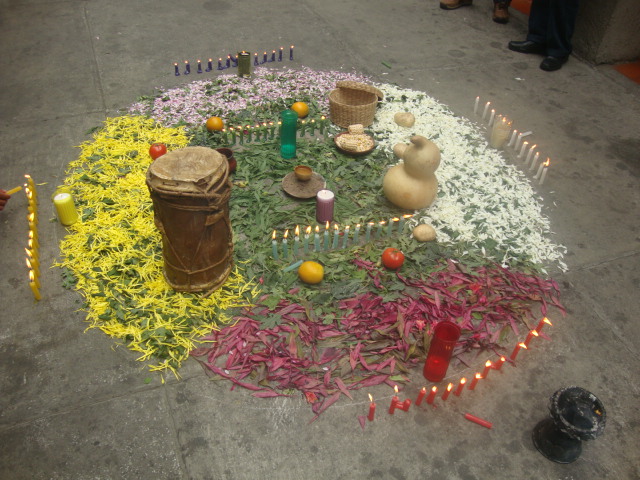
That, in social, economic and political situations of conflict, we may be courageous and passionate architects of dialogue and friendship. Lord hear us.

That, in social, economic and political situations of conflict, we may be courageous and passionate architects of dialogue and friendship. Lord hear us.
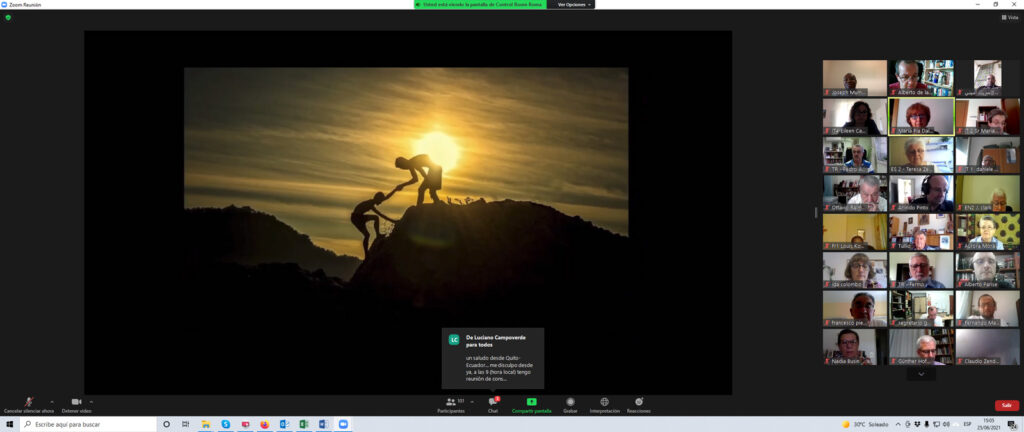
This past weekend we held the third and last webinar on the ministeriality of the Comboni Family.
During the first two we were receiving as participants many proposals and challenges. The commission presented us the great work of the information gather on all the projects that the Comboni Family is carrying out throughout the world in different countries and continents.
There is a great wealth of service being carried out.
In this last meeting we had plenty of time for conversation.
On Friday, in addition to update the progress we have made, we were able to share in small groups the concrete work that each one of us is doing and to deepen our understanding of it. It was a very nice moment to know firsthand the direct service of the participants of the group and the importance of it. It is true that it is only a sample of all that is done as a Comboni family, but we were able to discover the passion with which it is done and the interrelationship between a service and another.
On Saturday we continued in this line analyzing the impact that these services are having in the different communities and even tried to broaden the vision of our work, the need to network with the rest of the Comboni family as well as with other groups inside and outside the church and to be aware of how the macro structural aspects influence the concrete communities and make this networking more and more necessary.
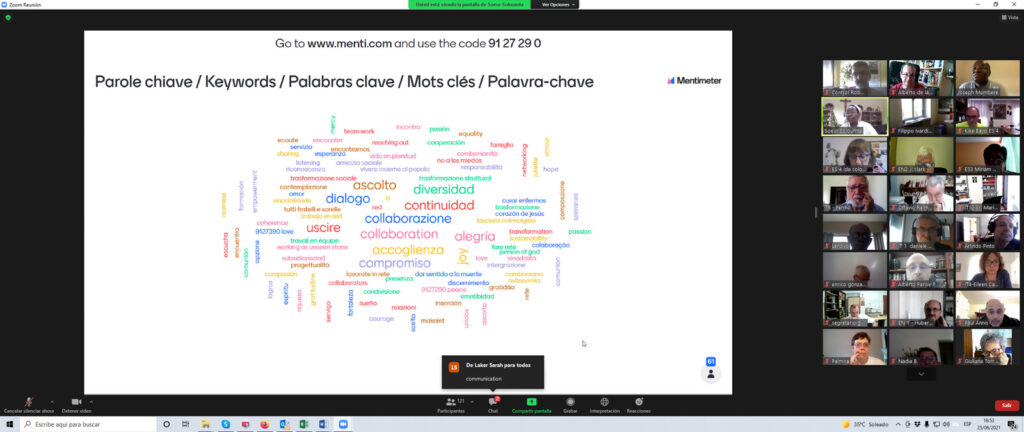
We ended by sharing ideas on how to continue the collaboration as Comboni family as it has been done during these meetings.
We are thankful to the commission on ministeriality of the Comboni Family that has made these meetings possible and to the great work of systematizing all that has been shared during these years, which offers us a lot of material for analysis to improve our missionary service.
The idea of continuing to collaborate by sectors was very much repeated, so that those of us who share the same type of services can collaborate and exchange experiences.
On the other hand, we talked about the importance of being able to meet regularly as a family. From the meeting we get to know each other deeply and new ideas for collaboration can emerge. Perhaps having an annual meeting in each country would be an idea to consider. A place where we can get to know each other in greater depth, share the services we are performing and respond as a family to the challenges of the mission from the place where we are. From there will emerge initiatives that can also be carried out both at the continental and international level.
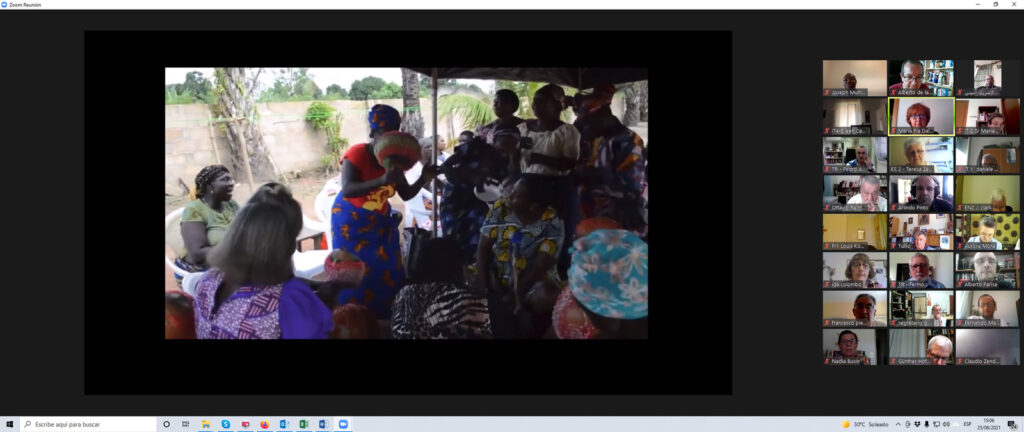
May the charism of Comboni inspire us in this collaboration for a better missionary service.
Alberto de la Portilla. CLM Central Committee
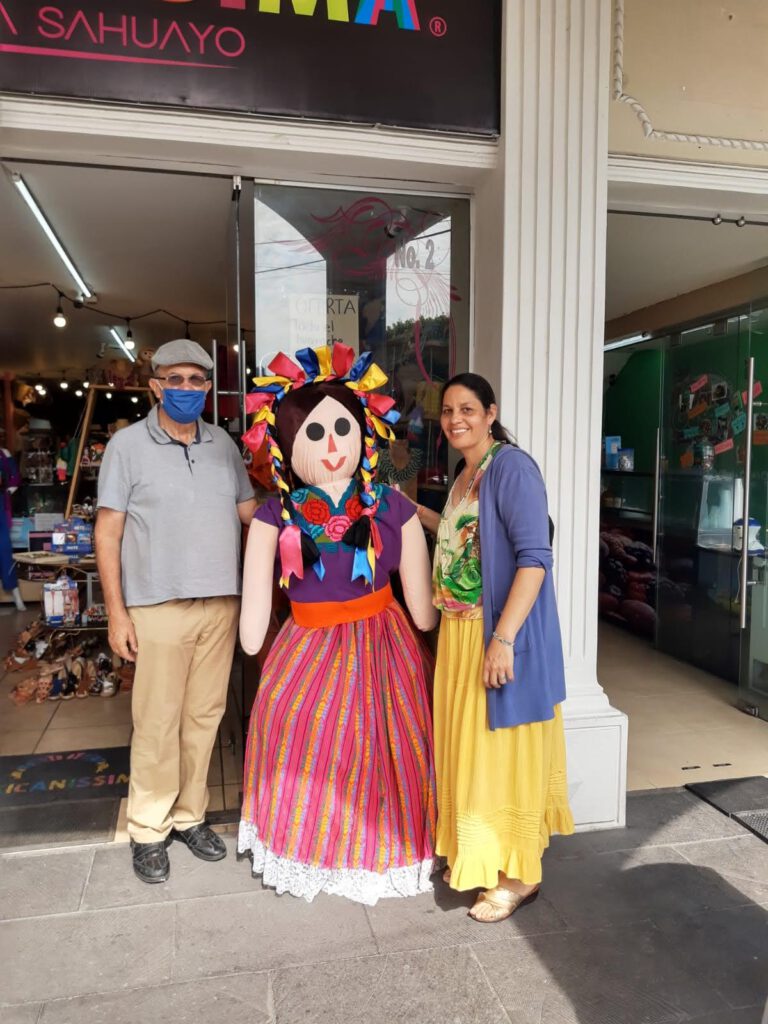
As we well know, the laity have an advisor at continental level, in America we are accompanied by Fr. Ottorino who serves in the province of Ecuador and was physically present in our country on the occasion of the vows that the already scholastic Larzon Alexandre Angulo Burbano made.
I had the opportunity to go to Mexico City, to accompany his visit and so I was able to walk a little accompanied with Fr. Juan Diego Provincial of Central America, Fr. Gabriel and Fr. Filomeno in order to visit Our Lady of Guadalupe. Besides walking around, we discussed the way in which the meeting with the Laity could be, since we are in different cities and we had to define the best option. With the group from Mexico City the date was set and without any problem the meeting took place. We had to adjust the way in which we would meet with the other groups since we thought of visiting each of the houses where there was presence of Laity, but by suggestion of the Provincial Fr. Enrique it was decided that he would only go to Sahuayo, the CLM of Guadalajara and San Francisco del Rincón would try to get there to be present. To facilitate the presence of the coordinating team where all the groups are present, a virtual meeting was organized where all the groups could be present, Vero from San Francisco del Rincón could not make it to Sahuayo for reasons of force majeure, but she connected virtually, so only Juan José from Sahuayo was missing, responsible for National Formation.
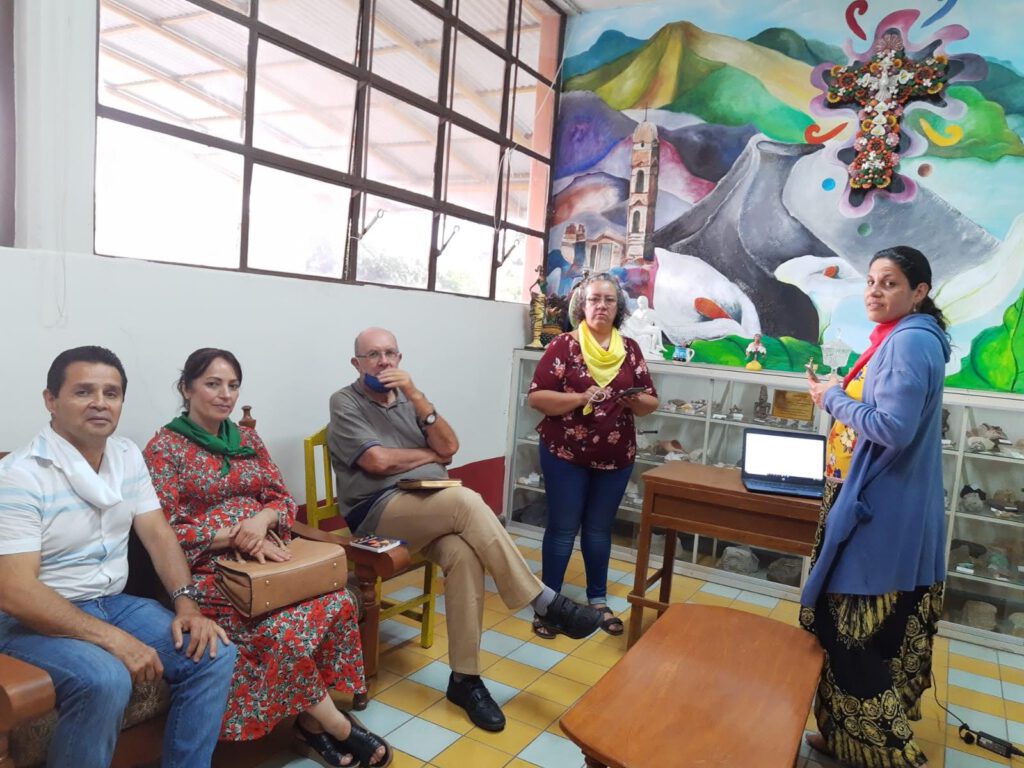
Fr Ottorino visited us, he listened attentively to each one of us and took note of everything we talked about, it was a lot of information in a short time. He proposed that soon we could meet, have our assembly, present reports, establish agreements, it is very good to have an advisor like him who is interested in each person and for the group to know how we are progressing, he also told us that he was already vaccinated and that he had had a quiet trip.
On May 10, which is celebrated as “Mother’s Day in Mexico” we had the opportunity to walk in the city of Sahuayo, visit the “Sacred Places” as the Shrine of Joselito, Cristo Rey, Catacombs of the Sacred Heart and the chapel of San Francisco where the MCCJ Fr. Tonino works; as well as Mexican handicraft stores, Huaraches (woven shoes) and the Municipal Market where the father could greet the family of Monica as they have a stand of seeds and dried chili peppers. In the afternoon we went to have lunch with the family at a farm and in the evening we enjoy a coffee in front of the main square. We know that on his return he would meet with Katarzyna and Adán a couple from Mexico City and before making his return trip he would meet with MCCJ Fr. Gustavo, advisor of the CLM in Mexico.
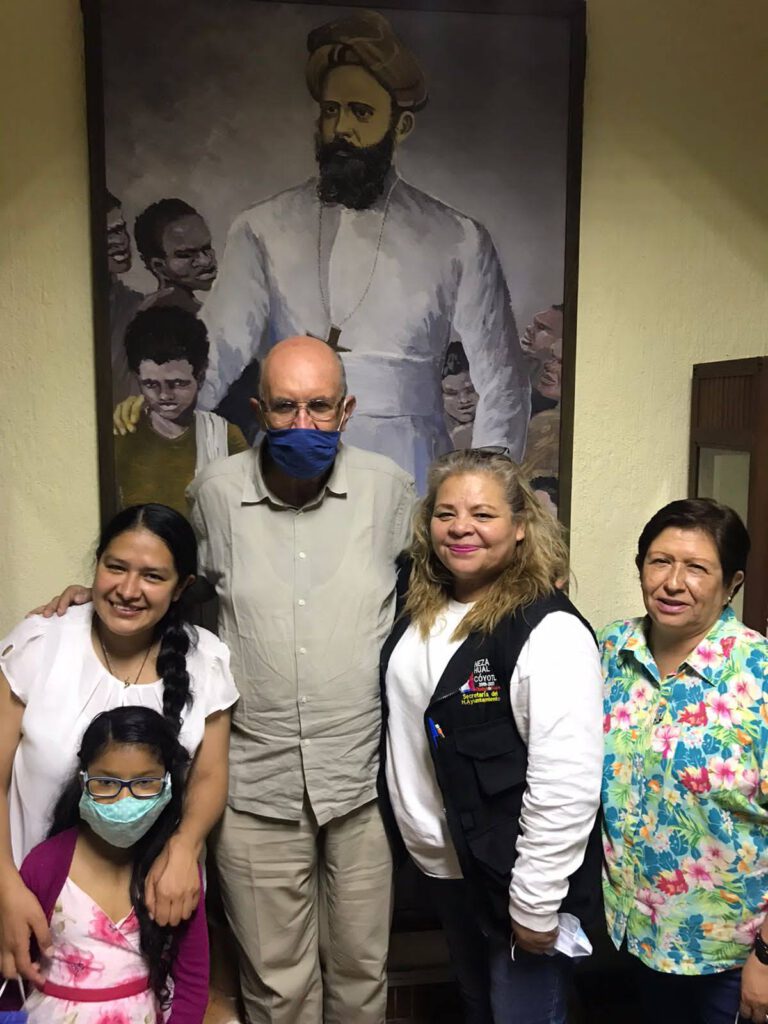
“Thank you for your sharing” Fr. OTTORINO.
Beatriz, CLM Mexico
We continue this series with Fr. Enrique Bayo Mata, a Comboni Missionary who spent fifteen years in the Democratic Republic of Congo. Fr. Enrique tells us about his rich experience of learning the African liturgy and his work on the continent, which includes, in addition to pastoral service, publishing, radio and television. For many years he has collaborated with the CLM in Congo, at the African level and even within the Central Committee of the CLM. (Interview in Spanish)
Last Saturday we held the regular meeting of the General Councils of the Comboni Family (Comboni Missionary Sisters, Secular Comboni Missionaries, Comboni Missionaries of the Heart of Jesus and Comboni Lay Missionaries).
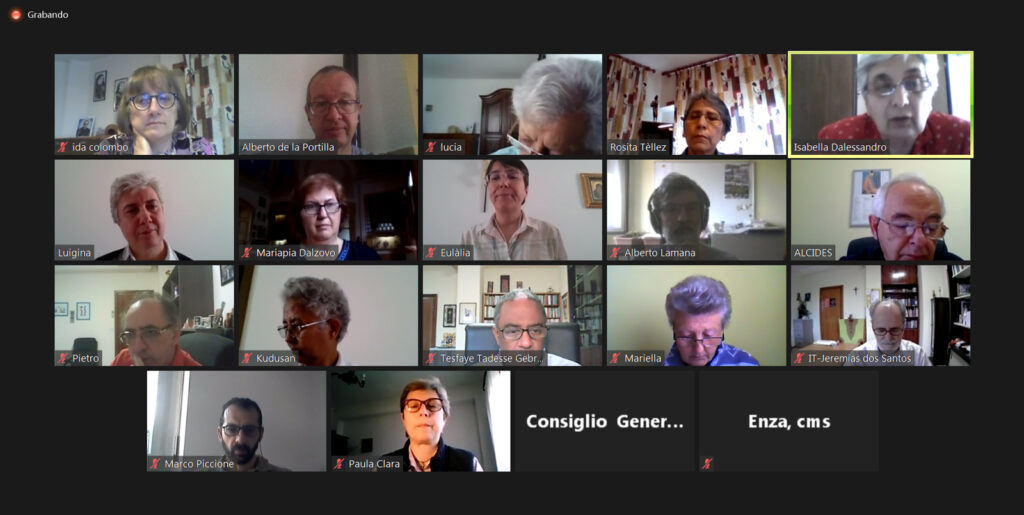
As it is usual at in this time of pandemic, we had to do it online. Hopefully we will soon be able to return to face-to-face meetings that allow us to share and talk, and at the same time to be able to extend them and address more topics. The online meetings have helped us to stay in touch in these pandemic times, but we all looked forward to being able to meet face-to-face.
We started the meeting with a simple welcome and a common prayer that put us in situation.
We were able to dedicate a first moment to share the concerns that we are currently experiencing in the different branches of the Family and thus update each other.
The first topic to work on was the result of the work of the ministeriality commission. In particular, the members of this commission presented the results of the data collection that has been carried out at the international level and that were presented in the last webinar of March 5 and 6. We were able to deepen in some of the data that are being extracted about the projects and missionary presences in the different continents. We were also able to learn about the work proposal for the next webinar to be held on June 25 and 26. This third meeting will close the first cycle of work and we hope that new proposals for collaboration and joint deepening as Comboni Family in our missionary service will emerge.
We are very satisfied and grateful for the great work of the commission on ministeriality and the welcoming and participation of the members of the Comboni Family in these meetings.
We will try to hold a meeting to study these results in greater depth once the third meeting is over and we have the proposals for the future drawn by all.
After a break we evaluated the work of collaboration that we have been doing as a Comboni family in recent years following the proposals launched in the joint letter of 2017 “Beyond collaboration: under Comboni’s gaze“.
We use an online tool to evaluate by cards the positive aspects, the difficulties encountered and the proposals for future work.
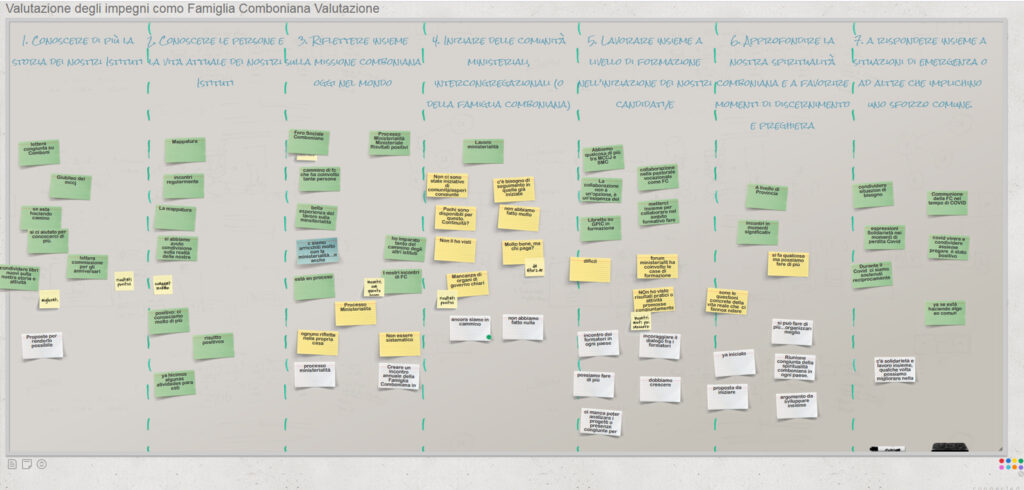
We see that the family feeling that permeates our council meetings is very good and the accompaniment that we maintain of the progress of the different branches. We understand that this is not only due to the people who are currently there, but that it is something that happens and must continue to happen regardless of possible changes in the teams.
In the coming months the general assembly of the Secular Comboni Missionaries and later the chapter of the MCCJ will be held. We wish them all the best and accompany these commitments with prayer and a willingness to collaborate as a family. How to further deepen this collaboration is something we will continue to work on in future meetings.
Greetings to everyone.
Alberto de la Portilla, CLM Central Committee